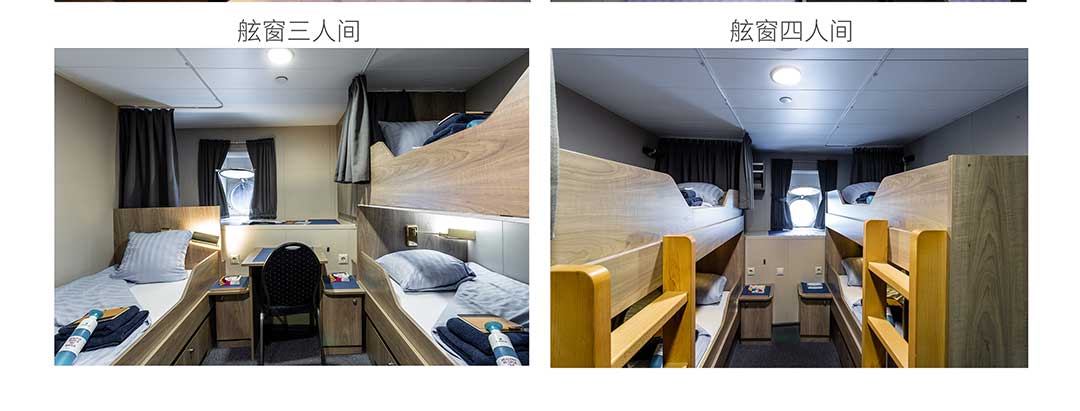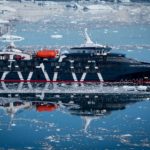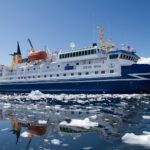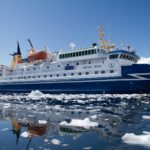布朗修斯号 m/v Plancius 20天19晚福克兰群岛+南乔治亚岛+南极半岛游
Adding item to wishlist requires an account
Don't have an account? Create one.
联系我们
如对极地旅行路线有任何疑问或者建议,敬请联系我们!
+86 773 586 8086
contact@12travel.net
热卖路线
麦哲伦探索号 Magellan Explorer 10天跨南极圈之旅
海洋新星号 Ocean Nova 10天跨南极圈之旅
海洋新星号 Ocean Nova 8日直飞南极经典游
订阅微信极地促销信息

这次福克兰群岛、南乔治亚岛和南极半岛巡游是成就动物爱好者的梦想之旅。 这次探险将探索地球上最后未曾开垦的地区之一——这片土地拥有崎岖美丽的风景和种类繁多的野生动物。

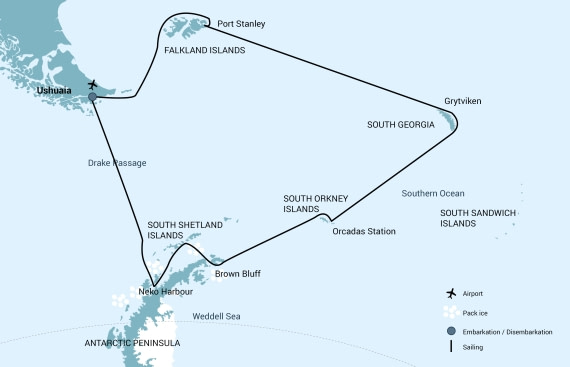

第一天抵达乌斯怀亚,登船
Your voyage begins where the world drops off. Ushuaia, Argentina, reputed to be the southernmost city on the planet, is located on the far southern tip of South America. Starting in the afternoon, you embark from this small resort town on Tierra del Fuego, nicknamed “The End of the World,” and sail the mountain-fringed Beagle Channel for the remainder of the evening.
第二天驶往福克兰群岛(马尔维纳斯群岛)
Several species of albatross follow the vessel into the westerlies, along with storm petrels, shearwaters, and diving petrels.
第三天福克兰群岛
The Falkland Islands offer an abundance of wildlife that is easily approachable, though caution is always advised. These islands are largely unknown gems, the site of a 1982 war between the UK and Argentina. Not only do various species of bird live here, but chances are great you’ll see both Peale’s dolphins and Commerson’s dolphins in the surrounding waters.
During this segment of the voyage, you may visit the following sites:
Carcass Island – Despite its name, this island is pleasantly rodent-free. But it is bounteous with birdlife as well as many endemic species Anything from breeding Magellanic penguins and gentoos to numerous waders and passerine birds (including Cobb’s wrens and tussock-birds) live here.
Saunders Island – Here you can see the black-browed albatross and its sometimes-clumsy landings, along with breeding imperial shags and rockhopper penguins. King penguins, Magellanic penguins, and gentoos are also found on Saunders Island.
第四天福克兰群岛
The capital of the Falklands and center of its culture, Stanley is a great place to enjoy some Victorian-era charm: colorful houses, well-tended gardens, and English-style pubs abound here. You can also see several century-old clipper ships nearby, silent witnesses to the hardships of 19th century sailors. The local museum is also worth a visit and offers free admission, covering the early days of settlement up to the Falklands War. Approximately 2,500 people currently live in Stanley.
第五天南福克兰群岛
The seldom-visited southern islands are a rare treat, and we’ll aim to give you a thorough tour of their rugged beauty. This area is a haven for wildlife of many types, especially birdlife. George Island and Barren Island in particular support more than 40 bird species, along with roughly 650 pairs of southern giant petrels. You also have a good chance of spotting elephant seals and southern sea lion colonies.
第六 - 七天驶往南乔治亚岛
En route to South Georgia, you now cross the Antarctic Convergence. The temperature cools considerably within the space of a few hours, and nutritious water rises to the surface of the sea due to colliding water columns. This phenomenon attracts a multitude of seabirds near the ship, including several species of albatross, shearwaters, petrels, prions, and skuas.
第八天 - 十一天南乔治亚岛
Today you arrive at the first South Georgia activity site. Please keep in mind that weather conditions in this area can be challenging, largely dictating the program.
Over the next several days, you have a chance to visit the following sites:
Fortuna Bay – A beautiful outwash plain from Fortuna Glacier is home to a large number of king penguins and seals. Here you may also have the chance to follow the final leg of Shackleton’s route to the abandoned whaling village of Stromness. This path cuts across the mountain pass beyond Shackleton’s Waterfall, and as the terrain is partly swampy, be prepared to cross a few small streams.
Salisbury Plain, St. Andrews Bay, Gold Harbour – These sites not only house the three largest king penguin colonies in South Georgia, they’re also three of the world’s largest breeding beaches for Antarctic fur seals. Literally millions of these animals breed on South Georgia during December and January, but only during the mid-season do they peak in their breeding cycle. You may also see some young adult elephant seals as well as this seasons “weaners” young elephant seals that have been left to fend for themselves. Watch your step and stay calm when walking the beaches during this time.
Grytviken – In this abandoned whaling station, king penguins walk the streets and elephant seals lie around like they own the place – because they basically do. Here you might be able to see the fascinating South Georgia Museum as well as Shackleton’s grave.
Depending on the conditions, we will start sailing toward the South Orkney Islands in the afternoon of day 11
第十二天驶往南极
There may be sea ice on this route, and at the edge of the ice some south polar skuas and snow petrels could join the other seabirds trailing the vessel south.
第十三天南奥克尼群岛
Conditions permitting, you might visit Orcadas Base today. Orcadas is an Argentine research station on Laurie Island in the South Orkney archipelago. The personnel will happily show you their facility, where you can enjoy expansive views of the surrounding glaciers. If a visit isn’t possible, however, we may instead land in Coronation Island’s Shingle Cove.
第十四 - 十五天驶往南极
Enormous icebergs and a fair chance of fin whale sightings ensure there’s never a dull moment on this last sea voyage south. Also, this is your best chance to spot Antarctic petrels. Depending on conditions, we aim to begin activities the afternoon of day 15.
第十六天 - 十七天威德尔海、南极半岛、南设得兰群岛
If the ice conditions permit, you now sail into the Weddell Sea. Here colossal tabular icebergs herald your arrival to the eastern side of the Antarctic Peninsula. Paulet Island, with its large population of Adélie penguins, is a possible stop. You might also visit Brown Bluff, located in the ice-clogged Antarctic Sound, where you could get the chance to set foot on the Antarctic Continent itself.
If conditions aren’t favorable to enter the Weddell Sea from the east, the ship will set course for Elephant Island and head into the Bransfield Strait, between the South Shetland Islands and the Antarctic Peninsula. Here you can attempt to access the Antarctic Sound from the northwest.
The breathtaking scenery continues in Bransfield Straight and, if conditions allow, farther south in the Gerlache Strait. Conditions on the Drake Passage determine the exact time of departure.
第十八 - 十九天穿越德雷克海峡
Your return voyage is far from lonely. While crossing the Drake, you’re again greeted by the vast array of seabirds remembered from the passage south. But they seem a little more familiar to you now, and you to them.
第二十天返回乌斯怀亚,离船
Today you disembark in Ushuaia, taking home priceless memories that will accompany you wherever your next adventure lies.


| 房型 | 2025年 10月25日-11月3日 |
2025年 11月27日-12月16日 |
|---|---|---|
| 舷窗四人间 Quadruple Porthole |
包船 | 14800 |
| 舷窗三人间 Triple Porthole |
包船 | 17600 |
| 舷窗双人间 Twin Porthole |
包船 | 17600 |
| 方窗双人间 Twin Window |
包船 | 18400 |
| 豪华双人间 Twin Deluxe |
包船 | 20000 |
| 高级双人间 Superior |
包船 | 21400 |
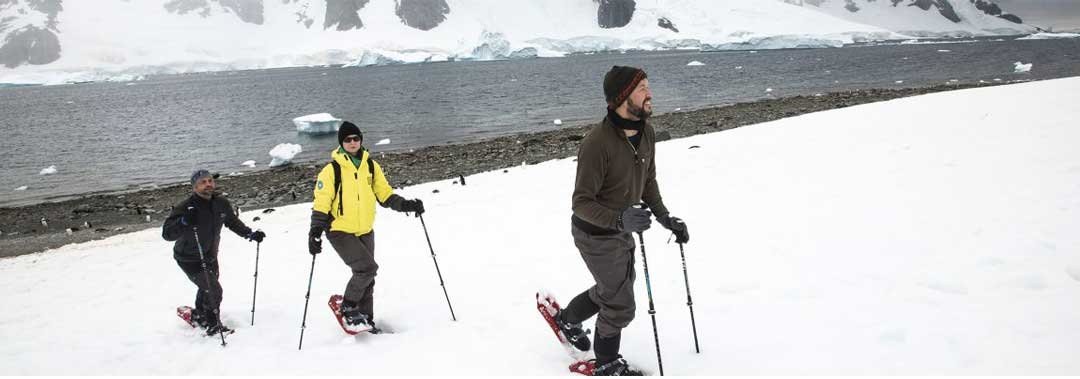




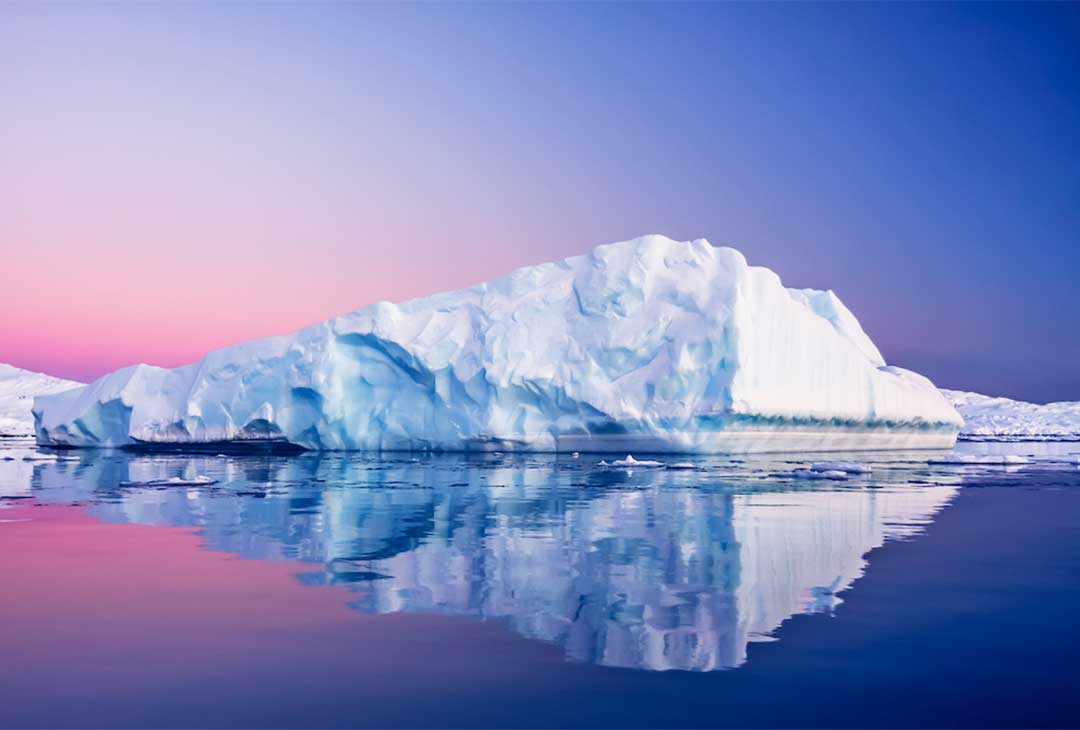

布朗修斯号 / Plancius 前身服役于荷兰皇家海军。
布朗修斯号的名字是对Plancius 基金会致敬。
该船在2009/2018/2019年分别进行三次甲板翻新工程,旨在为108位乘客提供舒适的海上住宿环境。
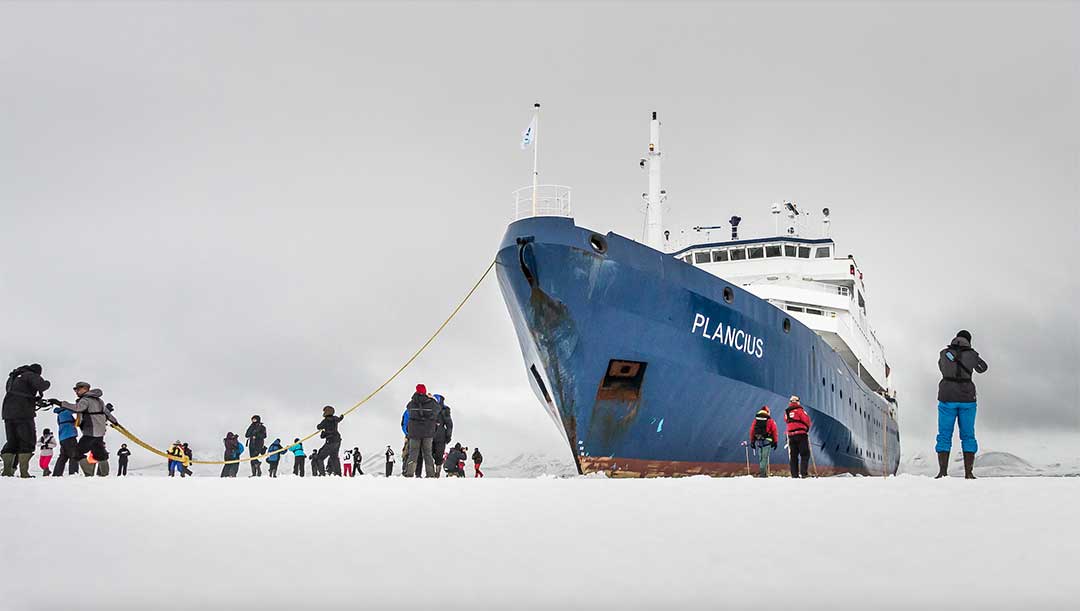

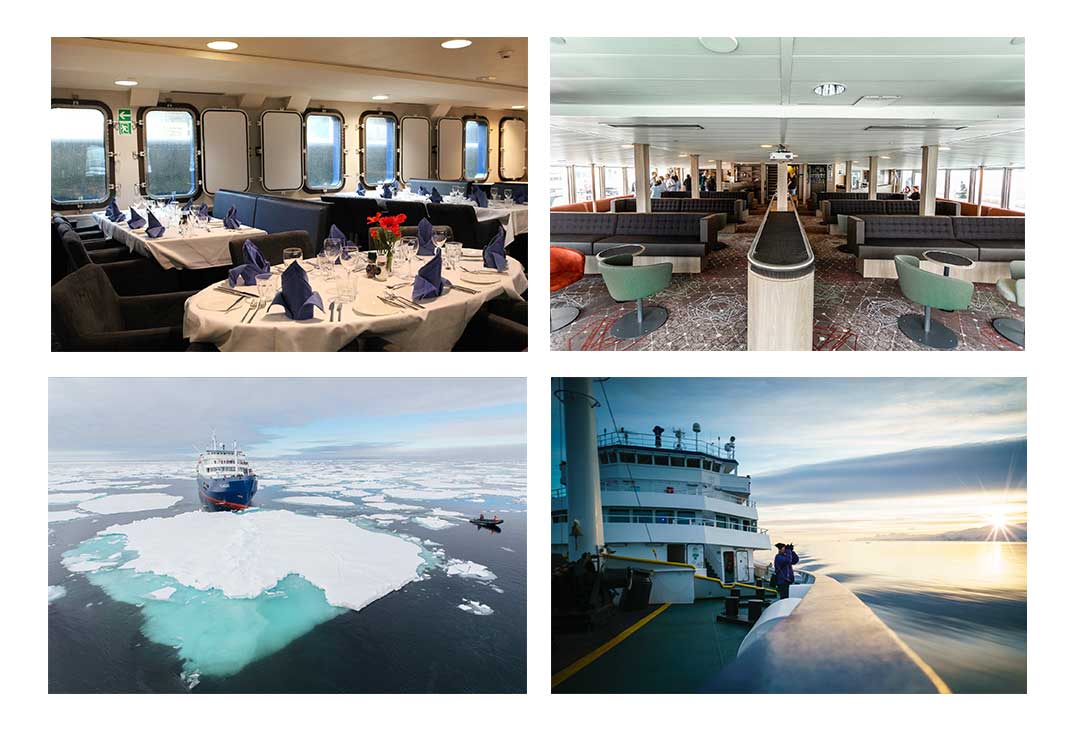

布朗修斯号 Plancius 甲板示意图

布朗修斯号 Plancius 房型示意图

